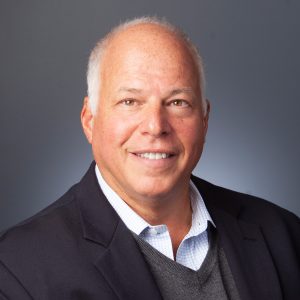EMPLOYEE BENEFITS
If COBRA Wasn’t Confusing Enough, the White House Is Going to Mix It up for You
Viewpoints from Craig Hasday
The federal government has been at it again with their point-and-shoot (whatever happened to aim?) rule writing. This time the Department of Labor (DOL) and the Department of Treasury, which directs the Internal Revenue Service (IRS), jointly issued a final rule extending notice and election times for Consolidated Omnibus Budget Reconciliation Act (COBRA) and Health Insurance Portability and Accountability Act (HIPAA) special elections, among other extensions. This whopper is retroactive to March 1, 2020 (really?) and applies to all plans subject to Employee Retirement Income Security Act (ERISA), which would include self-insured plans and COBRA, which is just about anyone with greater than 20 employees.
The rule extends time frames until 60 days after the current National Emergency is over (or any date subsequently announced). Under prior law, a plan participant had 30 days from the date of the qualifying event to exercise a HIPAA Special Enrollment right to make a mid-year plan change or 60 days following the loss of Medicaid or Children’s Health Insurance Program (CHIP) coverage. The 60-day COBRA election period is similarly extended, and an employer will not be allowed to terminate coverage due to non-payment of premiums during this time, extending the 45-day payment grace period. It’s not clear in the rules, but this may imply that employers will have to advance premiums to insurance carriers to extend coverage through this elongated election period. Claims appeals and external review of denied claims are also extended by the new rule.
In what some might consider an ironic twist, the rule also extends the timeframes for any ERISA required disclosures. So participants have these new lengthy timeframes, but employers don’t have to tell them about it. Also, Summary of Benefits and Coverage (SBC), Summary Plan Description (SPD) and even COBRA notice requirements are extended. It’s not clear, but employers may actually be able to change plans and not inform participants in advance or even soon after making a change. The new standard is “as soon as administratively practicable under the circumstances,” and plan sponsors can use any means of communication as long as they believe participants have reasonable access. So, the use of websites, emails and even texts will probably suffice.
Another administrative, and potentially financially damaging, rule is that COBRA premium payment periods are essentially frozen indefinitely effective March 1, 2020. I am not sure why anyone would voluntarily pay COBRA premiums at this point. It could make sense for the COBRA-qualified beneficiary to wait until the final election date and add up any incurred bills. If they are less than the retroactive COBRA premium, don’t elect. If they are more, make the election. Heads the COBRA participants win and tails the employer or the insurance carrier loses. But wait – this is retroactive to March 1, and it’s not clear how retroactivity will be handled.
Employers paying to continue coverage for employees who have been furloughed, terminated, or had their hours reduced may wish to use this subsidized coverage as an alternative instead of expanding the COBRA-eligible class and later allowing for COBRA following a subsequent termination of benefits. In this way, the COBRA timeclock would start on the original date the employee is no longer eligible for regular benefits. I suppose the employer would need to add a checkbox to their COBRA notice (which the participant can use to opt out) stating that the extension of coverage is employer-funded “alternative COBRA” and that the clock starts – or there may be future litigation.
If they haven’t done it already, plan administrators should have their benefit advisors on speed dial. It is getting crazy out there.
For our coronavirus coverage, visit epicbrokers.com/coronavirus
Join the conversation – participate in our “Return to Work” and other In It Together pulse surveys, our COVID-19 strategic collaboration and idea-sharing forum. Visit epicbrokers.com/insights/preparing-for-the-new-normal
Related Content
Products
Employee Benefits Consulting
Our dedicated EPIC benefits team is focused on delivering better outcomes – to both your benefits program ...
Products
Compliance
Our expert Compliance team provides comprehensive consulting services and in-depth education regarding the ...
Industries
Healthcare
Our healthcare practice is known around the world for its expertise and passion in delivering exceptional ...



